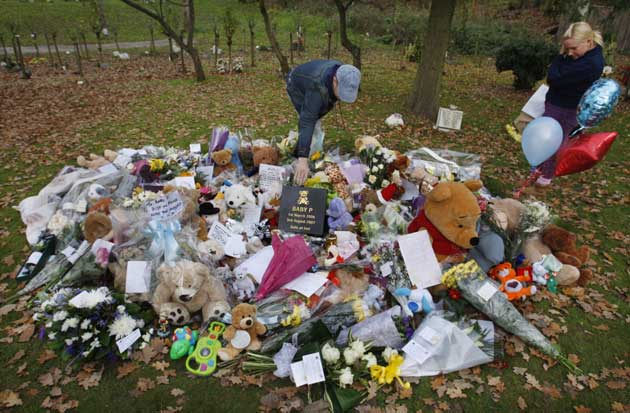'Baby P effect' causes sharp rise in care applications

Your support helps us to tell the story
From reproductive rights to climate change to Big Tech, The Independent is on the ground when the story is developing. Whether it's investigating the financials of Elon Musk's pro-Trump PAC or producing our latest documentary, 'The A Word', which shines a light on the American women fighting for reproductive rights, we know how important it is to parse out the facts from the messaging.
At such a critical moment in US history, we need reporters on the ground. Your donation allows us to keep sending journalists to speak to both sides of the story.
The Independent is trusted by Americans across the entire political spectrum. And unlike many other quality news outlets, we choose not to lock Americans out of our reporting and analysis with paywalls. We believe quality journalism should be available to everyone, paid for by those who can afford it.
Your support makes all the difference.The number of applications for children to be taken into care has increased dramatically as a result of what experts are calling the "Baby P effect". Legal care proceedings involving vulnerable children being brought to court have risen by nearly a third since details of the tragic case emerged.
Councils made 369 applications for care proceedings from 10-20 November this year compared with 292 applications during the same period last year, just under a 27 per cent rise, according to Cafcass, the independent body that safeguards the interests of children in care proceedings.
The increase, they claim, is a direct result of the Baby P case, which saw a 17-month-old die after suffering sustained abuse despite being on Haringey council's at-risk child protection register. The mother of the child, her boyfriend and lodger were convicted of involvement with his death and will be sentenced next month.
Anthony Douglas, Cafcass chief executive, said the case had made social workers more cautious. "It has caused a definite short-term bulge, as local authorities review their thresholds." He said more active reviews of cases would be good for vulnerable children, but warned that excessive caution could cause untold damage to others. "It will be better for some children, but it may not be for others, who would be better cared forby family members or friends. Risk-averse decisions could be damaging.
"If it protects one child who needs that extra level of protection, then I'll be pleased," he said. "But if not, the premature removal of a child from a family needs rectifying as soon as possible." The sudden spike came after a decline in care-proceeding applications after since fees for such proceedings leapt from £150 to £4,825 in May.
The statistics used to calculate the scale of child abuse across the country, however, were last night queried. Ofsted inspectors said there had been 282 child deaths reported by local authorities over a 17-month period in an annual report released last Wednesday. But government sources were reportedly worried that the figure was "misleading" and had mistakenly included cases of terminally ill children and the deaths of toddlers in accidents. They suggested privately that it was more likely that about 100 of the deaths could be attributed to child abuse.
The public outcry over the Baby P case has prompted fears that the boy's mother may now need state protection. Her legal team is said to be drawing up an application under the Human Rights Act for the 27-year-old to be granted lifetime anonymity. The latest plans would involve changing the mother's name, finding her a new home and constant police protection.
Tory MP Andrew Rosindell said: "Any suggestion that we should already be planning for release or re-accommodation is not something that anybody should be considering at this time."
Guidelines to help health professionals detect child abuse will not be published until after the sentencing of those involved in Baby P's death. Guidance for NHS staff from the National Institute of Clinical Excellence (Nice) on when to suspect maltreatment was to be published last week, days after the three were found guilty of involvement in the child's death.
A group of experts who worked on the guidelines are said to be "dismayed" by what they see as an unnecessary delay, which Nice says was caused by the need for "further work".
Meanwhile, a teenage girl who once lived in the same house as Baby P told the News of The World today how she was haunted by flashbacks of the cruelty she had seen. Mary, as the newspaper named her because she can't be identified, moved in to be with her lover, the lodger who lived with Baby P's mother and his mother's boyfriend. The 16-year-old told how she witnessed the toddler being hurt by his "stepdad" but was too scared to intervene. She said: "His eyes were evil. When he was hurting Baby P, he'd look at me and grin. I wish I hadn't been too scared to stand up to his stepdad. Now I deserver to suffer," she added.
Join our commenting forum
Join thought-provoking conversations, follow other Independent readers and see their replies
Comments